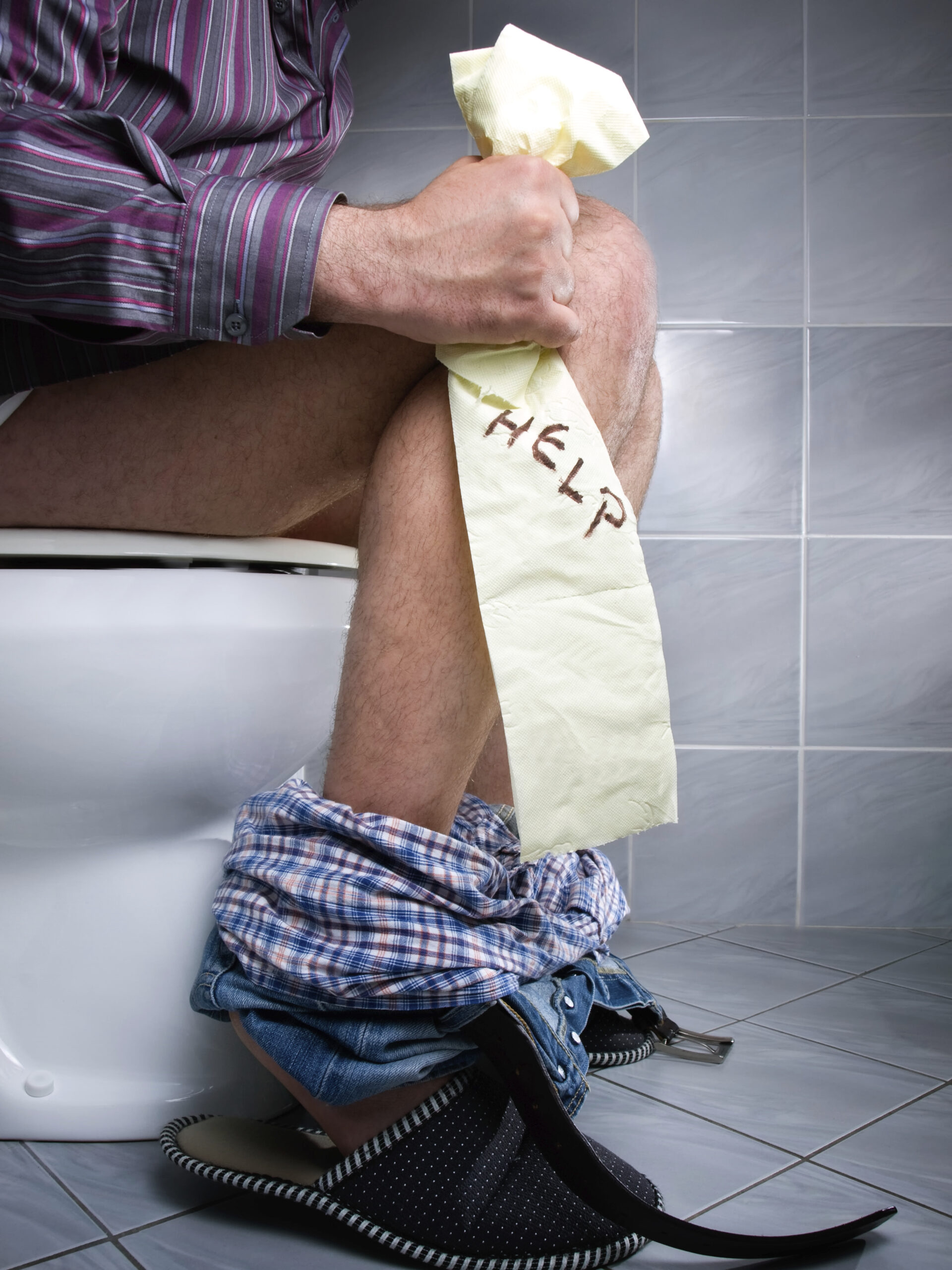About Hemorrhoids
At HCA we can help you get the relief you deserve today with our non-surgical hemorrhoid office treatment. You no longer have to suffer the pain, bleeding, or itching of hemorrhoids or fissures. We understand you may be nervous or embarrassed but we can assure you our office treatment will quickly get you back to the old you. Going to the bathroom does not need to be feared. Our patients are thrilled to get rid of their pain, bleeding, and itching without surgery. They only wish they would have done it sooner. Do yourself a huge favor and make an appointment today.
What are Hemorrhoids?
In the human body, several blood vessels supply the tissue in the lower rectum. We all have these blood vessels and they are called the hemorrhoid vessels. They form three cushions that help fill the rectum and aid in continence. The internal hemorrhoids are connected to the surrounding muscles by connective tissue. As the hemorrhoids continue to enlarge they may break their connections and protrude outside the anal canal which is called prolapse. A combination of genetically determined decreased connective tissue strength and increased pelvic pressure may lead to these blood vessels swelling which can cause pain, itching, leakage, and bleeding. Straining from constipation or diarrhea, heavy lifting, core exercising, prolonged sitting, pregnancy, or even air travel may exacerbate your hemorrhoids.
What are Internal vs. External Hemorrhoids?
There are two types: internal, on the inside of the rectum, and external, under the skin of the opening of the anus. Internal hemorrhoid swelling is the main cause of rectal bleeding and pressure. External hemorrhoid swelling adds to the pressure and makes hygiene more difficult. Enlarged internal hemorrhoids can lead to a discharge of infected mucous causing skin infections, rash, and itching. Blood clots in the external hemorrhoids leads to a painful thrombosis that may rupture and bleed.
Treatments
Mild hemorrhoid symptoms may respond to increased water, fiber, lubrication, and lifestyle modifications. Over the counter hemorrhoid creams and suppositories may provide temporary relief for some, but do nothing to help reduce the increased pressure in the rectum. The use of witch hazel, hydrocortisone, and topical anesthetics may provide some temporary relief. Their use should be limited to avoid side effects of skin infection, rash and skin thinning. Their usage may also mask symptoms due to other conditions such as colorectal or anal cancer. It is not safe to assume your bleeding, pain, or itching is due to hemorrhoids. Change in bowel habits, black or tarry stools, passage of significant blood or clots, abdominal or pelvic pain, or weight loss may indicate other conditions and need evaluation as soon as possible.
Many hemorrhoid products touted on the internet have to be taken everyday forever, are expensive, and have no proven results. Steroids and OTC preparations or suppositories are ineffective and do not help the increased anal pressure and pain. The appeal of this type of Hemorrhoid “Treatment” capitalizes on the fear and embarrassment of seeing a doctor. Knowing we will help you with our non-surgical treatment should help you overcome your fears. Topical Nitroglycerin and the analgesic Lidocaine will reduce anal pressure, swelling, pain, and bleeding. These “miracle” ointments can help you get the relief you deserve today. Custom compounds have replaced ineffective OTC preparations, suppositories, and steroids as the preferred medical treatment If needed, we will use a bander ligation system to quickly and with minimal discomfort shrink your internal hemorrhoids. It is time to get a proven, effective, and safe cure for your hemorrhoids.
Surgical Treatment Can Be Avoided
Traditional surgery for hemorrhoids is called hemorrhoidectomy. In this procedure, any internal and external hemorrhoids are excised and the tissue is either sewn closed, or left open to heal naturally. The healing process is slow and painful, and patients can expect to be home from work, resting, and on pain medication for up to two or three weeks. Over the years, various surgical methods have been tried, each with their own risks and side effects.
Dilation treatment is one approach. The anus is forcefully dilated to reduce the tightness and pressure placed on the veins. However, many patients find that while the treatment cures their hemorrhoids, it causes fecal incontinence. A more invasive approach with similar results is the sphincterotomy, wherein the anal sphincter is partly cut to loosen it, lessening chronic anal tightness. Another procedure, a “stapled” hemorrhoidectomy, offers a shorter healing period and less pain, but there are still serious side effects which can occur. This so called “PPH” procedure has been abandoned by many surgeons because of potential complications. Doppler guided ligation is effective but involves anesthesia and operating room charges. A variety of lasers have been used but are also expensive and may require anesthesia.
Non-Surgical Hemorrhoid Treatment
Surgery has been replaced by non-surgical office hemorrhoid treatments. Cryotherapy, freezing of hemorrhoids, is very painful and no longer recommended. Sclerotherapy, injection of liquids that clot the hemorrhoids, is painful and rarely used now. Infrared coagulation or IRC has proven to be less successful than originally hoped and made external hemorrhoids worse in some cases.
Hemorrhoid Ligation System -The New Gold Standard
The preferred non-surgical hemorrhoid treatment is rubber band ligation. Our disposable banders are a marked improvement over other systems. It is disposable, safe, and effective. It uses gentle suction to place the rubber band over one internal hemorrhoid per treatment. Three banding sessions are frequently required. Within days, the hemorrhoidal tissue dies and is passed during a bowel movement. A small scar will form making it less likely the hemorrhoid will recur or prolapse. Our bander ligation system is disposable and easy to use. The procedure takes only seconds. Most patients feel a slight pressure for 1-2 days afterwards. This new ligator eliminates the need for surgery in almost all cases. As an office procedure, the patient can return to work comfortably right after the appointment.
At HCA we only use disposable ligation systems. Dr. Goldman introduced disposable banding to the Southeastern United States in 2006. Dr. Alan Goldman is the Medical Director of Hemorrhoid Centers of America. At HCA we have helped thousands of patients avoid surgery and get the relief they deserve. We will start you on our special hemorrhoid compounds as needed for immediate relief and help you get rid of your hemorrhoids with our ligation system.
Hemorrhoid Surgery in Older Adults: Not a 'Minor' Procedure
At HCA we recommend Hemorrhoid banding as a safer less painful option compared to hemorrhoidectomy. This is true in all grades of hemorrhoids. Unfortunately, in the USA many specialists still recommend surgery.
A recent study confirms Hemorrhoid surgery has increased complications, which is particularly true in older patients.
Many older adults who undergo hemorrhoid surgery experience
complications in the 30 days after the procedure, including infections and
cardiovascular or pulmonary problems, and a substantial proportion die
during the year after surgery, according to a Medicare claims study.
Doctors often think of hemorrhoidal surgery as a minor procedure and thus
of minor consequence, including for older adults," Steinman said. "But the data suggest that harms from this procedure in vulnerable, older nursing
home residents can be substantial."
Compared with the matched community-dwelling older adults, nursing home residents were more likely to experience 30-day complications (53% vs 33%; risk ratio [RR], 1.59). They also had an increased risk for 1-year mortality (25% vs 16%; RR, 1.54).
In a subset of nursing home residents for whom more information was
available, the researchers found that 32% experienced worsening fecal
continence after hemorrhoid surgery.
Michael Steinman, MD, who is a member of the faculty in the UCSF
Division of Geriatrics and is affiliated with the San Francisco VA Medical
Center, agreed.
"This may cause us to reevaluate when we would recommend surgery
for hemorrhoids for a highly vulnerable older adult in a nursing home
setting and to have a frank discussion of the potential risks of this
procedure,"
American Geriatrics Society (AGS) 2021 Annual Scientific Meeting: P-25.
Presented May 14, 2021. study author Alexis Colley, MD.
HCA Office Treatment Features the CRH O'Regan Ligation System
Mitchel Guttenplan, MDCRH Medical Director
Top 10 Hemorrhoid Questions

About 1 in 20 Americans have hemorrhoids. You are not alone.


